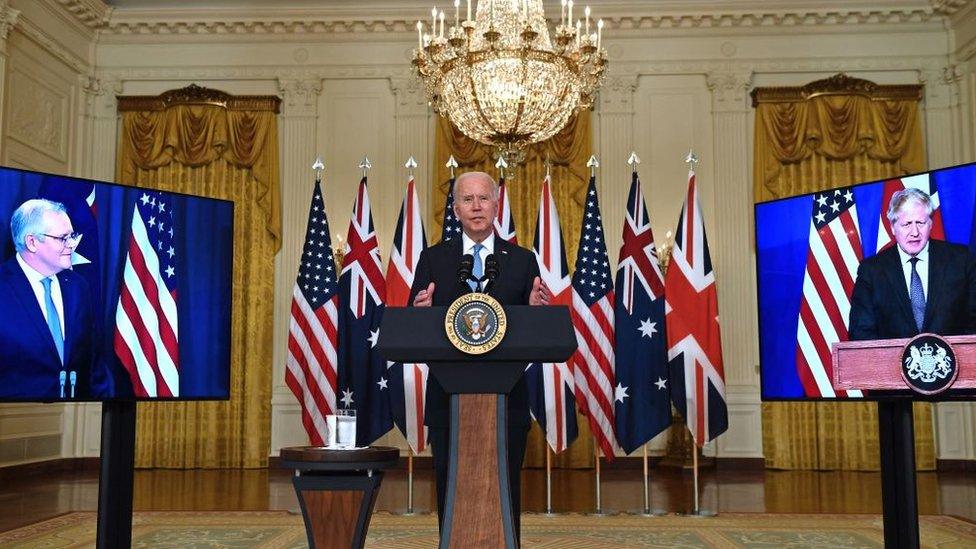Aukus: Australia to pay €555m settlement to French firm
- Published
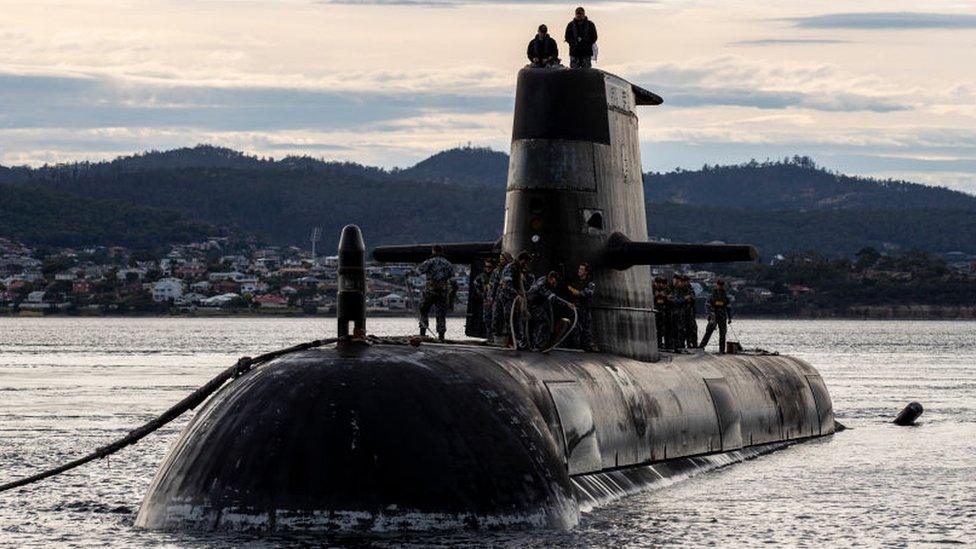
Australia has announced a €555m ($585m; £475m) settlement with France's Naval Group as compensation for scuppering a submarine contract with Paris.
Australia angered France last year by suddenly cancelling a €35bn deal to build a fleet of submarines.
Instead, it chose to build nuclear-powered submarines with US and UK technology - the so-called Aukus deal.
The settlement draws a line under a bitter row that threatened to torpedo EU-Australia trade agreement talks.
Anthony Albanese, who became Australia's prime minister last month, said it was a "fair and an equitable settlement".
He added that he would travel to France soon to "reset" a relationship beset by "pretty obvious" tensions.
French Defence Minister Sebastien Lecornu said the settlement "permits us to turn a page in our bilateral relations with Australia and look to the future".

Aukus: The basics
What is Aukus? It's a security pact between Australia, the US and UK. It allows for greater sharing of intelligence, but crucially it gives Australia secret technology to build nuclear-powered submarines, though not equipped with nuclear weapons
What's the aim? Aukus is widely seen as a response to the growing power of China, and an effort to counter its influence in the contested South China Sea
Why did it anger France? Australia cancelled a US$37bn (A$52bn; £27bn; €35bn) deal with a French company building diesel-powered submarines, and, what's more, France - a traditional Western ally - found out about the new pact only a few hours before the public announcement

The agreement between Australia, the US and UK will see Canberra being given the technology to build at least eight nuclear-powered submarines as a way of countering China's influence in the contested South China Sea.
The pact will also cover artificial intelligence and other technologies in what analysts say is one of the countries' biggest defence partnerships in decades.
It means Australia will become just the seventh nation in the world to operate nuclear-powered submarines.
But the decision by Australia to end its submarine contract with France drew fury from Paris, with President Emmanuel Macron accusing Australia's former PM Scott Morrison of lying, and recalling his ambassador from Australia in protest.
Relations between the two countries were on ice until last month when Australia elected centre-left leader Mr Albanese - the first Labor leader to come to power in more than a decade.
"We are re-establishing a better relationship between Australia and France," Mr Albanese said, after speaking to Mr Macron about the settlement.
"I'm looking forward to taking up president Macron's invitation to me to visit Paris at the earliest opportunity."
Mr Albanese added that the failed French submarine contract will have cost Australian taxpayers A$3.4bn (US$2.4bn; €2.28bn) with almost nothing to show for it.
Reset with China
Meanwhile, Mr Albanese's government has also made tentative steps to conduct ministerial-level talks with China after a range of political and trade disputes between the countries.
Relations went into decline after Australia called for a probe into the origins of coronavirus and banned Chinese firm Huawei from building its 5G network.
Speaking in Singapore on Saturday, Defence Minister Richard Marles said Australia wanted "respectful" relations with all countries in the region, adding: "This includes China."
"Australia values a productive relationship with China. China is not going anywhere. And we all need to live together and, hopefully, prosper together," he said.
China has previously accused Australia, the US and UK of having a "Cold War mentality" over the Aukus agreement.
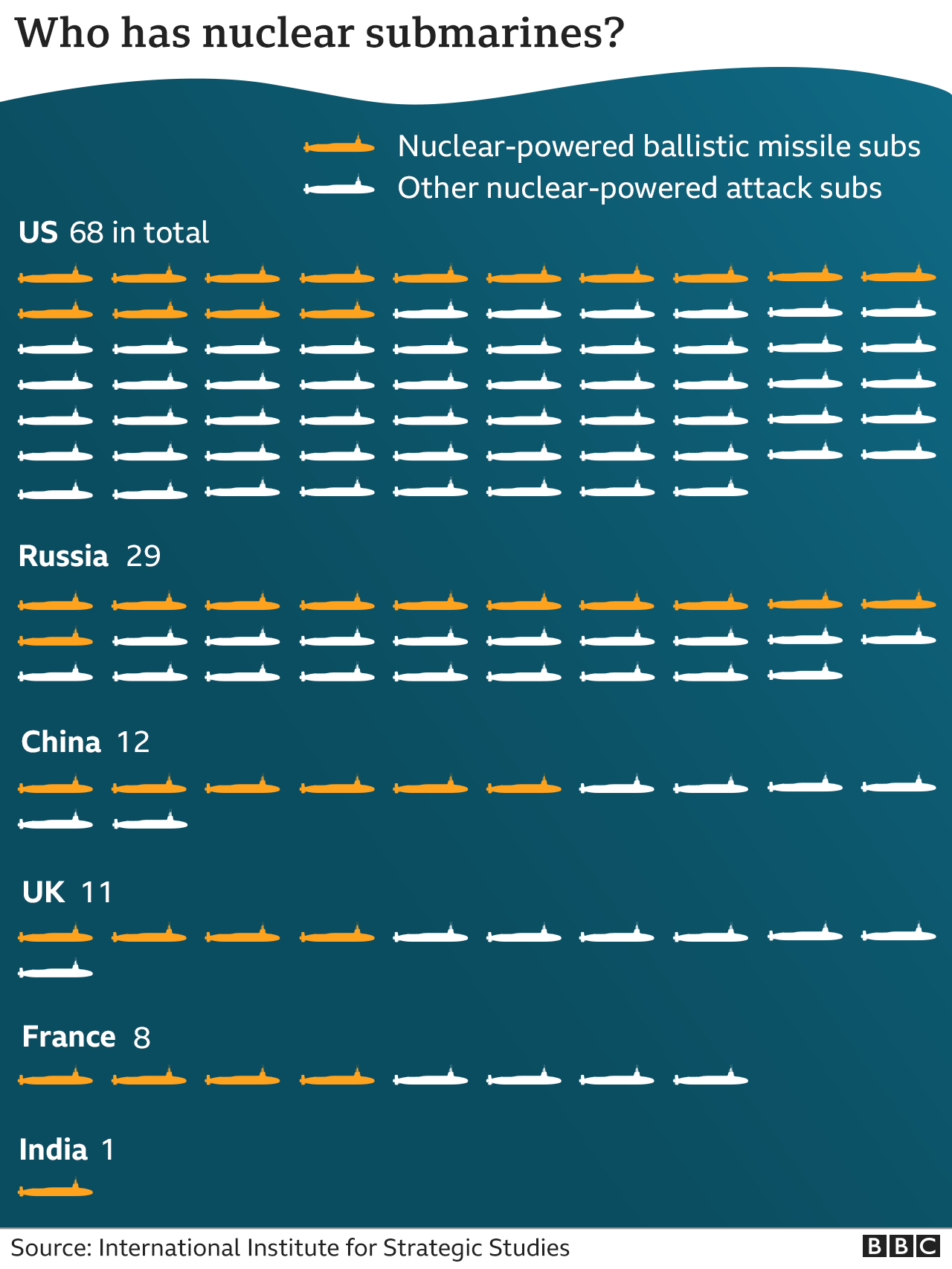

Related topics
- Published1 October 2021

- Published2 November 2021
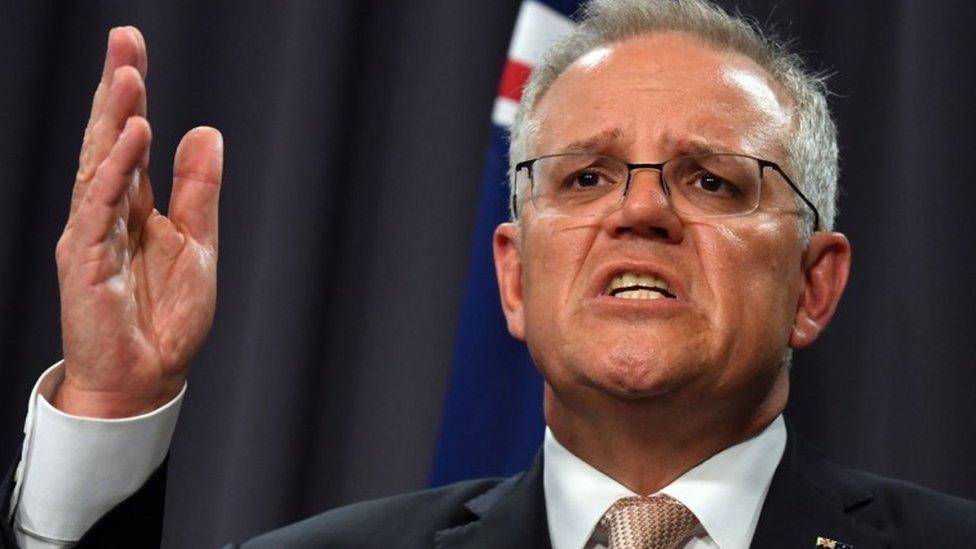
- Published17 September 2021
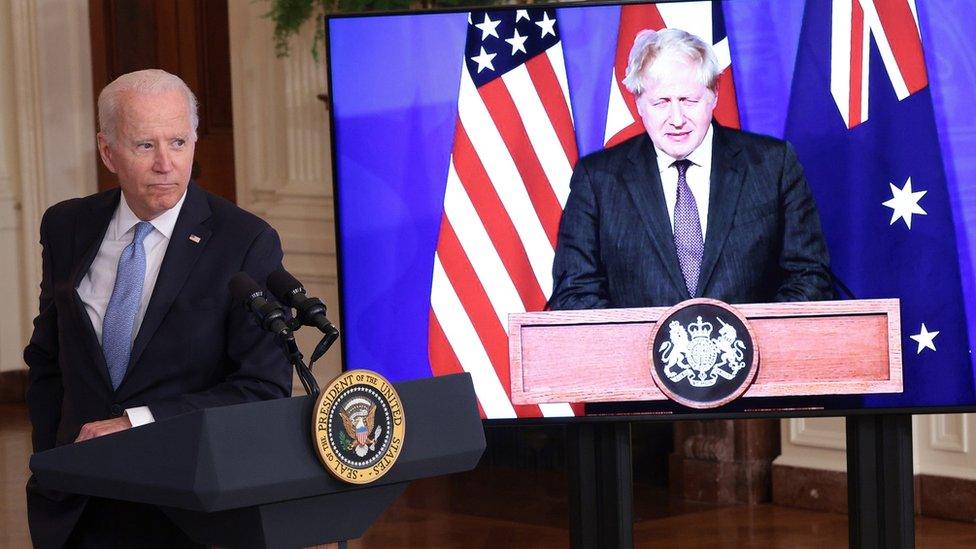
- Published16 September 2021
